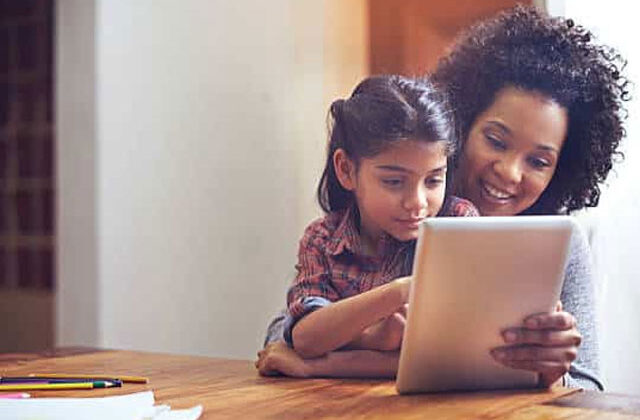
Mrs.Devi Venugopal,
Educational Psychologist, Indonesia
We have discussed about the increased suicide rates and even investigated the CBT Psychoeducation. How can parents help in children Emotional Regulation, through different age groups. In the past couple of years, we had a lot on our plate, especially Covid Pandemic has created an increase in the anxiety and depression rates alongside the suicidal ideations. The recent data shows that the suicidal ideation among the adult population is sky rocketing.
If the caretaker is fighting against the mental pandemic how can we support the younger generation. There is a huge possibility to pass on our fears, worries and trauma to the children creating more harm than good.
I am not scaring off the readers, it’s a fact the sooner we realize it, the sooner we can act upon it. Coming back to the different age groups, how they have been affected by COVID are given below:
Elementary kids (Ages 6-10)
Basic Socialization – Kids have become like fish on the land throwing tantrums, there is a gap in the cognitive development due to isolation.
Problems modulating emotions – they don’t know how to regulate their emotion especially in the red zone, lots of unresolved conflicts in the playgrounds and classrooms.
Struggle to correct intervention – unable to take feedback and apply it, initially if a child has a conflict with another child, it can be easily resolved through an adult intervention. But now it is like we are handling kindergartners in Elementary, its hard for them to accept and abide by the boundaries.
Middle School Tweens (Ages 11-13)
- They seem to be young – they act as if they are in Elementary, they have hard time to follow instructions.
- Less autonomy – Self regulation is a serious problem, let alone accountability.
- Less able to preserve, more volatile – they are more fragile, and it puts a real threat how strong our future generation would be.
High School Teenagers (Ages 14-18)
- High level of anxiety – it is based on their social groups, especially the girls are so vulnerable to the social image, where to sit, what to wear, what to eat.
- Highly driven and worried about academics – the academic load is high, and the competition is too harsh. Sometimes the seniors must work 48 hours without sleep. The demands to get into a good University and the expectations are too high.
Have you ever wondered why the anxiety, depression and suicidal thoughts have been on a rise especially during and after Pandemic?
- Reduced face to face time – Can you remember how much time you would spend when you were a kids, just hanging with friends without doing anything, there was no TV shows, no social media.
- What is recorded is there forever – for example whatever silly things we did when we were teenager no one ones except couple of our friends, but now with internet and cloud, it is permanently recorded. This puts a high risk on today’s generation.
- Focus and exclusivity is diluted – kids do so much of multitasking so the focus and attention is divided, many of kids study while listening to music, do art while watching a TV show, read while checking social media.
- A friend isn’t a friend, and a Like doesn’t mean that you like – too much buzz around how you portray on social media, so honesty and trust is missing. A person just giving a like doesn’t mean anything, do you how many of us are relying on these fake likes.
How can a parent help?
- Emotional regulation is an active process, learned, practice and used, for example if you have anxiety around public speaking, you must tell a narrative which helps you to go through it. I’m going to give this presentation to a group of friends, who are happy to see me, anxiety can only be overcome by gradually exposing yourself to the phobia. The worst fantasy your mind throws at you is not a reality, it is only by constant exposure you will learn and see that is true.
- Distress tolerance – they must learn to be uncomfortable and be ok with that, many times life will trough surprises around every corner, we cannot make everything comfortable for them.
- Risk-taking – they don’t always have to succeed in whatever they do, its ok to try new things and fail, rather than doing easy things.
- Failure recovery – taking failures personal it’s a distorted way of thinking. So how you talk or think about failure with your children is important. It is important to fail, as we will learn and grow so much from that. It also helps us develop emotional resilience.
- Social Sensitivity and reciprocity – there is a huge physical distance due to social media, we have many WA groups, but how genuine and close we are, is the actual question.
- Development of emotional intimacy – when I was 13 years old, I used to hang around with friends and cousins after school, there was always human touch. But now my kids are not comfortable with human touch. Emotional intimacy is scarce.
In summary, let the kids fall and learn, don’t be overprotective, let them explore and make some mistakes so they can learn and grow emotionally and practice accountability. It is easier said than done, when I was young if I say I’m going to a friend’s house, my mom doesn’t worry about me, by constantly calling or checking my location, but today there is no privacy to our personal lives. Let them try new things for just fun, not competition. Let them choose courses so they enjoy learning not to just compete. Each child is different one size will not fit all. The stakes are high, but if we don’t help them grow their emotional resilience, it doesn’t matter what scores they got in High School, they might not succeed in life. So please be considerate and aware of the role you play in your child’s life.






